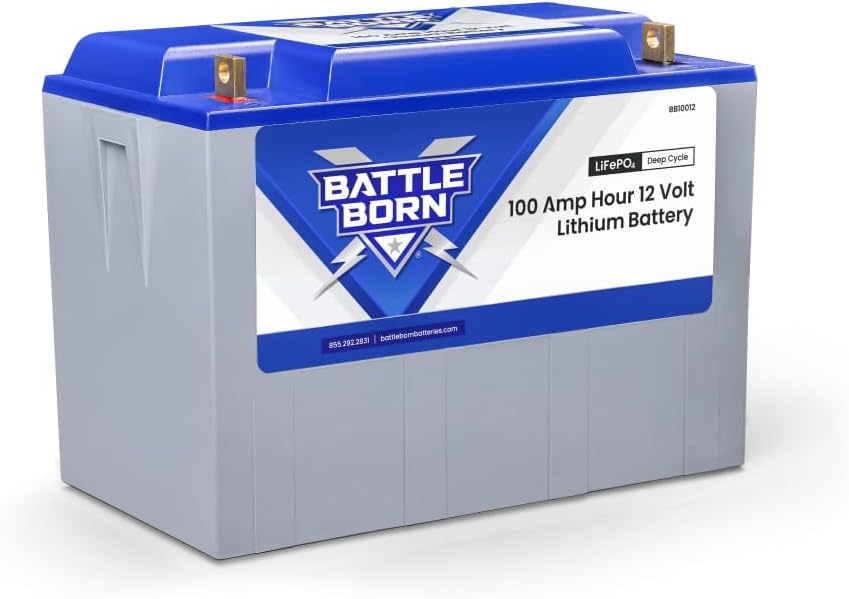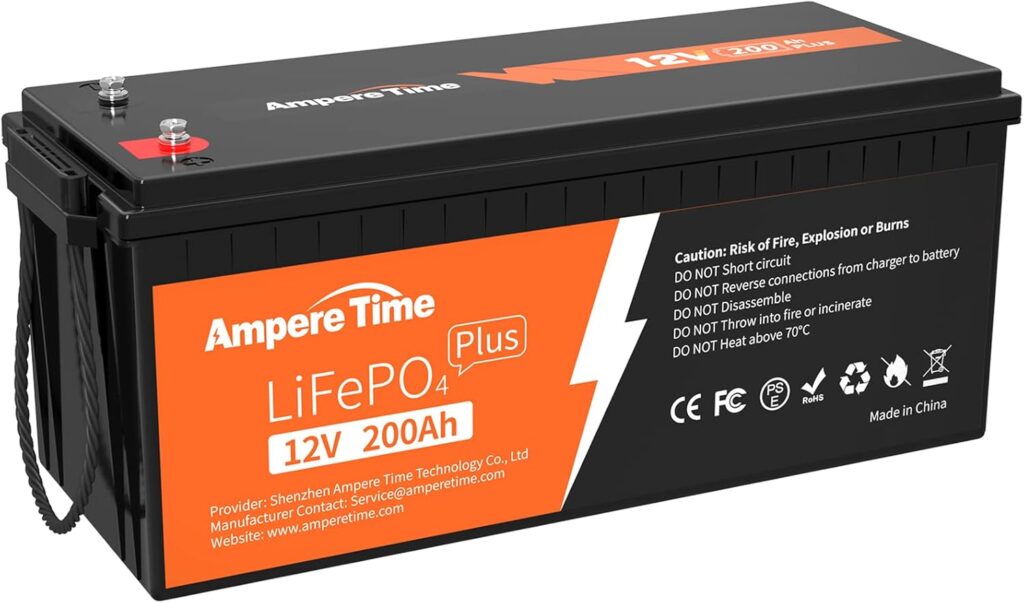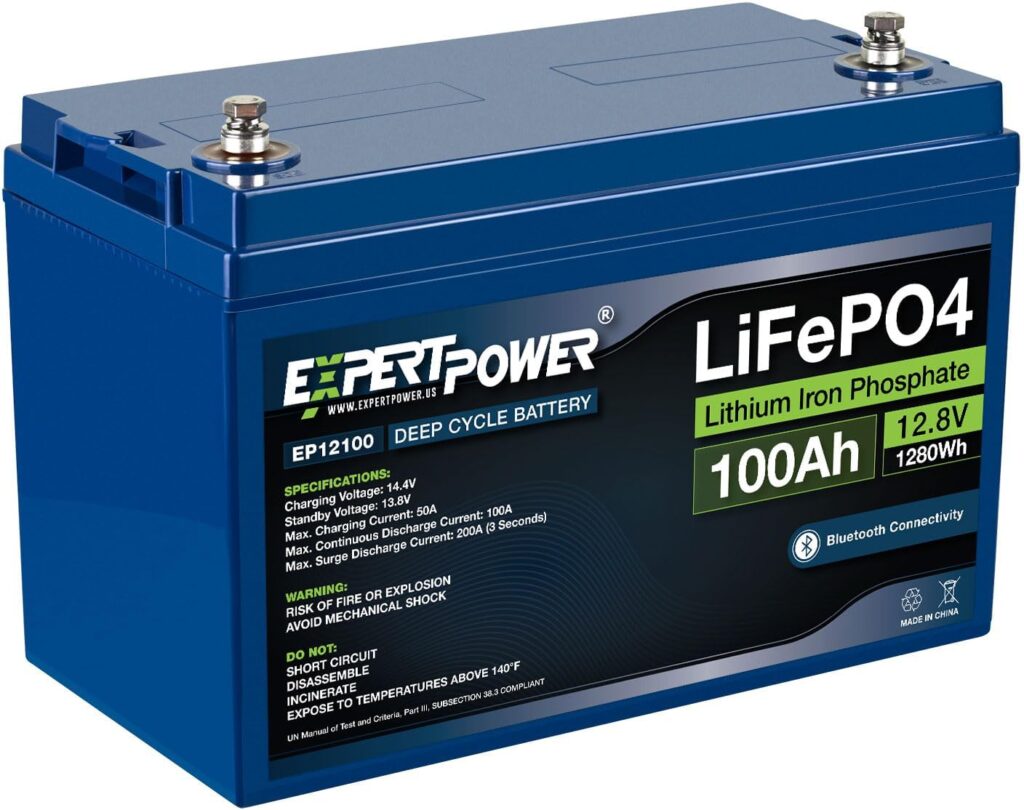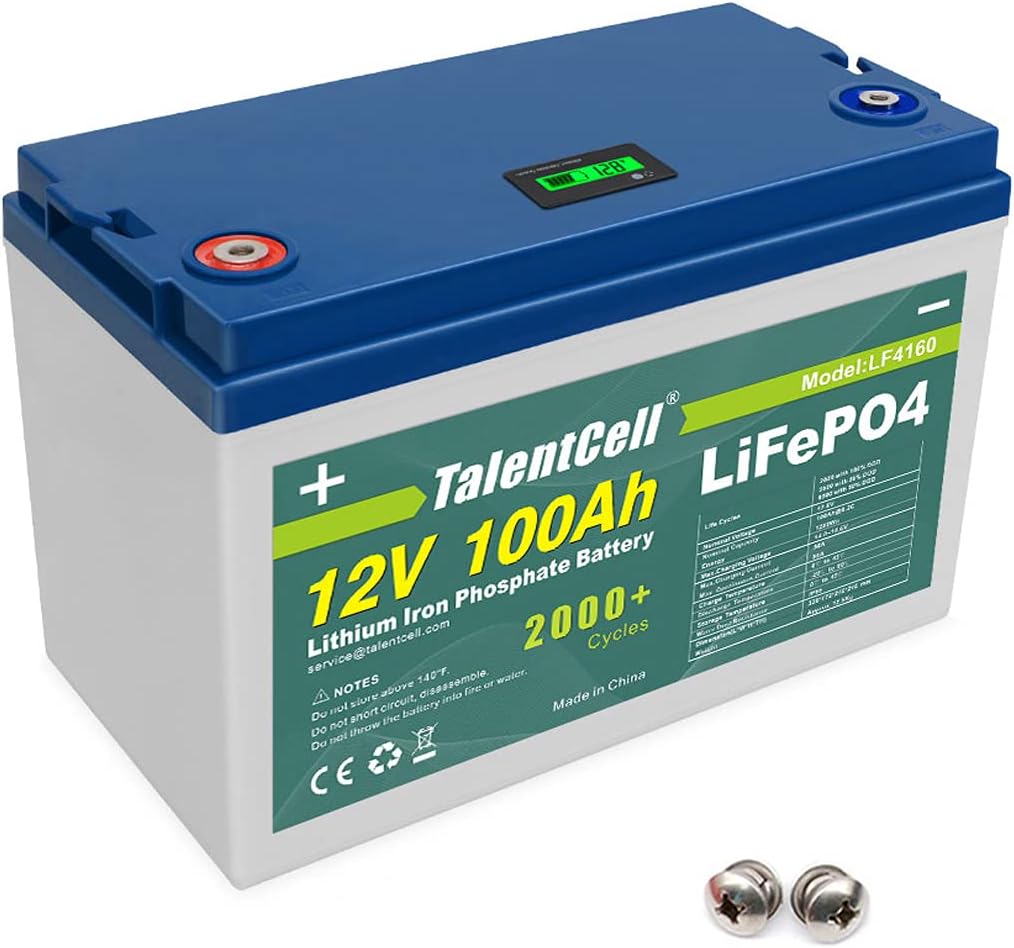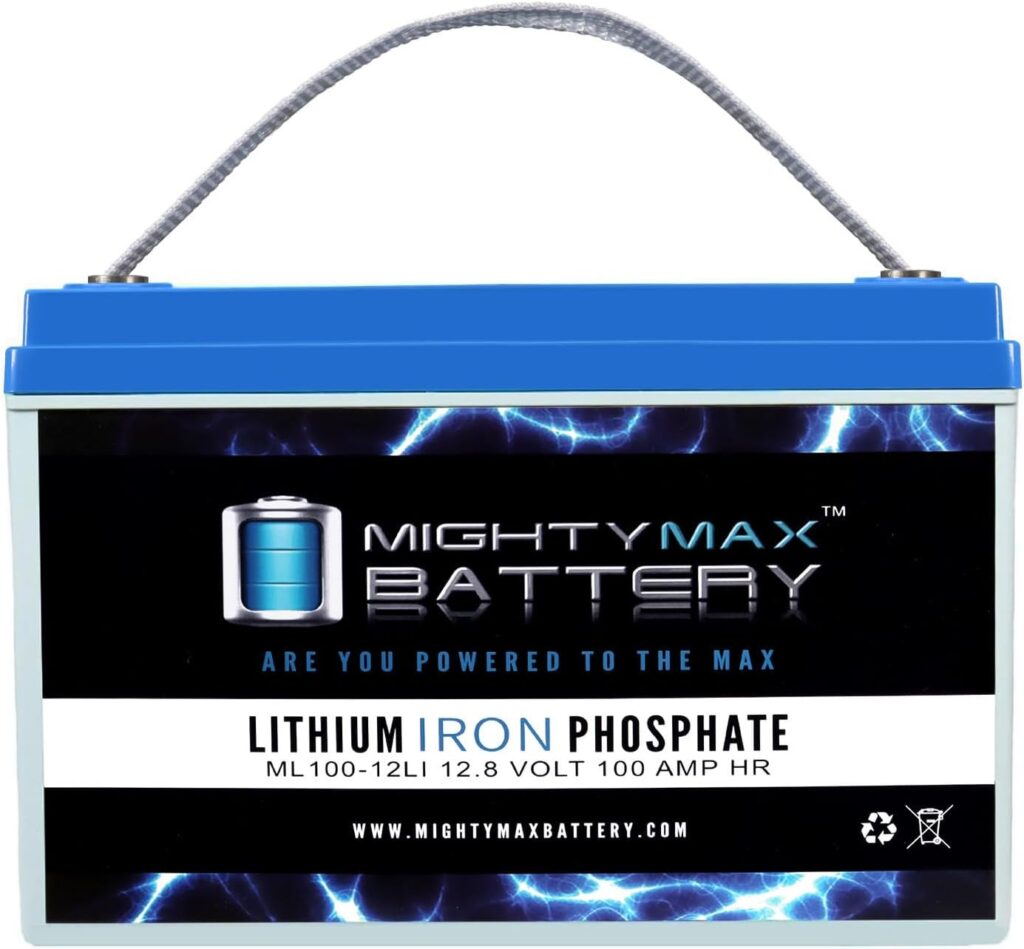Are you in the market for a new battery and are considering a lithium battery for your RV? Want to enjoy all the comforts of home life and use your appliances in your RV on the go? Either way, you will need a battery you can rely on that will last longer than other batteries. This article highlights our list of the best lithium batteries for RV.
Best Lithium Battery for RV Use – The Basics
What is a Lithium Battery?
A lithium-ion battery is a rechargeable battery where lithium ions move from a negative electrode to a positive electrode upon discharge and back during charging. This provides high energy density and low self-discharge (power leakage). Because of the low self-discharge rate, lithium-ion batteries take a long time to discharge and provide a long, useful life, making them a good investment.
Lithium-ion batteries retain their power, provide a more constant charge, and are more reliable than lead (SLA) batteries. In addition, they can be recharged multiple times.
Sony developed them and initially found common use in electronics, electric vehicles, and other commercial applications.
Lithium Iron Phosphate (LiFePO4) batteries have similar features as lithium-ion batteries and the same advantages over lead (SLA) batteries.
The Difference Between Lithium-ion and Lithium Iron (LiFePO4) Batteries
Since we are discussing Lithium batteries, we should discuss the difference between Lithium-ion batteries and Lithium Iron Phosphate (LiFePO4) batteries, as we have recommendations for both types of batteries.
The main difference is the chemistry, superior to lead (SLA) batteries. LiFePO4 is a newer type of battery gaining recognition and popularity that is superior to Lithium-ion at a comparable price.
Lithium-ion has a higher energy density than lithium iron phosphate, so it discharges faster than lithium iron phosphate batteries. Lithium iron phosphate has a lifecycle of 1,000-10,000 cycles, whereas lithium-ion has a life cycle of 500-1,000.
Lithium-iron phosphate batteries are more stable and perform better at higher temperatures. This is something to remember if you travel through the southwest often.
The summary is that while LiFePO4 is superior to Lithium-ion, either battery is an excellent choice to install into your RV and provides the necessary power to have a tremendous experience during your travels.
What is the Best Lithium-Ion Battery for RV Use
With the overwhelming number of brands for purchase (with new products coming all the time), finding the best lithium battery for your home can be a lot of effort. When considering which one to purchase, the top features are capacity, durability, life cycles (life expectancy), and maintenance – or lack of maintenance.
You will also need to consider where your RV will be used and what type of power requirements it will have, especially if boondocking or dry camping. Lithium batteries are sealed and require no maintenance during use, unlike lead batteries, which may require topping up with distilled water on the road.
Also, Lithium-ion and LiFePO4 batteries handle temperature fluctuations, allowing them to maintain stable performance in any temperature, hot or cold.
Finally, our budget is also a consideration, and if you only take a few trips every year, or most or all of your RV travels allow for shore power hook-up, then a less expensive lead battery could work for you.
Another way to look at it as an investment is to think about how long your battery will last. On average, lead-acid batteries can last up to 5 years with proper maintenance if a Lithium-ion or LiFePO4 battery lasts up to 10 times longer, with most rated at 2x-3x longer. Most have a 10-year service life expectancy.
We believe lithium-ion or lithium-iron phosphate is worth the extra expense, will provide a good investment over time, and are often the best choice, as they charge faster, weigh less than lead batteries, and have a longer life.
Our Best Lithium Battery for RV Use Recommendations
Here are our five recommendations to consider for the best lithium battery for RV use:
1. Ampere Time 12V 200Ah Lithium-ion Deep Cycle Battery
- Has a built-in Battery Management System (BMS) to protect from over-charge, over-current, or short circuit.
- Providers 4000+ cycles or 10-year service life.
- Lightweight at 48.3 lbs.
- Holds the highest UL safety level and can be installed and mounted in any direction.
2. Battle Born LiFePO4 Deep Cycle Battery
- Has a built-in Battery Management System (BMS) to protect from over-charge, over-current, or short circuit. Battle Born calls it the Brain of the Battery.
- Green Energy batteries are made from 100% safe, nontoxic, and renewable energy.
- Assembled in the USA in Reno, NV, with UL-listed cells and carries a 10-year warranty.
- Very light and manageable at 31 lbs.
- Sealed and safe to install and mount in any direction.
3. ExpertPower 12V 100Ah Lithium LiFePO4 Deep Cycle Rechargeable Battery
- It has a built-in Battery Management System (BMS) to protect from overcharge, deep discharge, overloading, overheating, or short circuit.
- Provides up to 7,000 life cycles and a 10-year service life
- Weighing only 22.6 lbs, one of the lightest batteries on our list
4. TalentCell Rechargeable 12V 100Ah LiFEPO4 Deep Cycle Battery
- Battery Management system to protect from over-charge, over-discharge, or short circuit.
- Lightweight at 28.2 lbs
- Up to 7,000 life cycles
5. Mighty Max Battery 12V 100AH Lithium LiFePO4 Battery
- Designed for safety with built-in protection with a battery management system (BMS). BMS includes protection from high or low voltage, over-current, short circuit, and overcharging.
- Very low self-discharge rate.
- Sealed, rechargeable, and maintenance-free.
- Lightweight at 30 lbs.
Best Lithium Battery for RV Use – Wrapping Up
Lithium-ion batteries are the best because they are maintenance-free, rechargeable, offer a longer service life, and are much lighter than lead (SLA) batteries. More importantly, the RV lithium-ion and lithium iron phosphate batteries are safe, environmentally friendly, and constructed from non-toxic, renewable materials.
So spend your time outdoors enjoying the road, seeing new places, meeting new people, and do not worry about whether your battery will leak or the impact of your carbon footprint. We hope that our recommendations serve you well. Thank you for reading. Happy and safe travels
